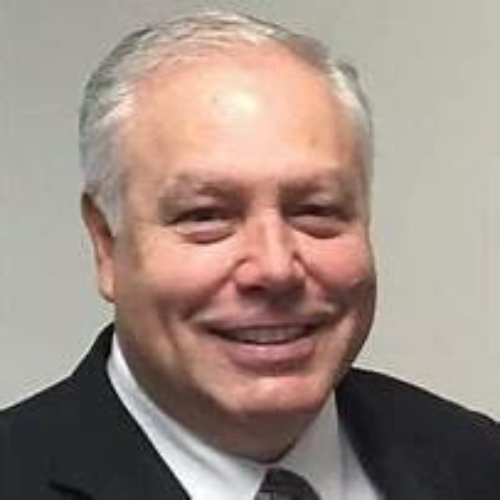-
The Mission Of David Livingstone PRO
Contributed by Sermon Central on Aug 30, 2011 (message contributor)
THE MISSION OF DAVID LIVINGSTONE
The modern missionary movement really got started about 150 years ago with people who were concerned about the continent of Africa. There was a Scottish preacher by the name of Robert Moffatt who was serving in South Africa. He returned to Scotland to try to enlist more missionaries. On a cold, rainy night, he went into a little church in Scotland. To his dismay, the only people in the service that night were women. Back in those days, women didn't go alone to the mission field. He started to cancel his message, because there were no prospective missionaries there, but instead he preached to them about the need for the Lord of the harvest to send forth more laborers. He made this statement, "Every morning when I get up and look at the horizon, I see the smoke from a thousand villages where the name of Christ has never been heard."
Robert Moffatt didn't know there was a teenager in that service. He was hidden up in the organ loft where his job was to pump the bellows for the pipe organ. This teenage boy, standing up in the organ chamber, heard every word he said, and he was haunted by that phrase, "The smoke from a thousand villages where the name of Christ has never been heard." So this young man decided he would become a missionary. His name, by the way, was David Livingstone.
He became a medical doctor and went to Africa. He was not content to stay in South Africa, where there were few native Africans; instead he explored the inner continent. He was a great missionary and a great explorer. He was the first white man to traverse the continent of Africa from east to west. He discovered Victoria Falls. He traveled over 29,000 miles and mapped one million square miles of previously uncharted territory.
When David Livingstone first began his ministry there, some of the native tribes opposed him. One particular warlike tribe said they were going to kill him and everyone in his party. One afternoon as they were setting up camp, word was out that these warriors had been tracking him all day, and they were outside the camp and they were going to attack and kill everyone when it got dark. I have the words David Livingstone wrote in his journal that night on January 14, 1856.
"It is evening. I feel much turmoil and fear in the prospect of having all of my plans knocked on the head by savages who are just now outside the camp." Those who studied his handwriting said you could even see the fear in the way he wrote the letters. He wrote, "But Jesus said, 'All power is given unto me in heaven and earth, and lo, I am with you always, even unto the ends of the earth.'" Livingstone wrote, "This is the word of a gentleman of most strict and sacred honor, so that's the end of my fear. I feel quiet and calm now." Even his letters are straight now.
They didn't attack that night. Later the tribe was brought to faith in Christ. A couple of years later, David Livingstone asked the chief of the tribe, "Do you remember the night you were tracking my party?"
"Yes."
"We had heard rumors you were going to attack us."
The chief said, "That's right, we were ready to attack the camp that night and kill you and everyone else."
David Livingstone asked, "Why didn't you attack?"
The chief said, "When we got close to the camp, we looked and saw 47 warriors surrounding your camp with swords in their hands."
David Livingstone was baffled. They didn't have any guards, any warriors.
Later when he was on furlough in Scotland, he shared this story at a church that was supporting him. A man came up to him afterwards with his prayer journal. He said, "Look, I wrote it down, January 14, 1856, was that the night?" David Livingstone said, "Yes." The man said, "That night a group of men came to pray for you. We prayed for your protection. I wrote it down. There were 47 men praying that night for you."
David Livingstone got so immersed into the Dark Continent most people thought he was dead because they had not heard from him for years. The New York Times hired Henry Stanley, an explorer, to search out Africa and find him. Finally Henry Stanley ventured in on this one camp, and there was the only white man for miles and miles around. In that classic statement, he walked up to David Livingstone and said, "Mr. Livingstone, I presume?"...
Continue reading this sermon illustration (Free with PRO)Related Sermon Illustrations
-
Billy Sunday Said, "If You Have No Joy, There's ... PRO
Contributed by Richard Burkey on Jun 22, 2005
Billy Sunday said, “if you have no joy, there’s a leak ...read more
-
Hellen Keller Said, "Joy Is The Holy Fire That ...
Contributed by Richard Burkey on Jun 22, 2005
Hellen Keller said, “Joy is the holy fire that keeps our purpose warm ...read more
-
Have You Ever Noticed That Good Feeling That You ...
Contributed by Michael Trask on Jan 18, 2007
Have you ever noticed that good feeling that you get when you give of yourself? Perhaps you gave time to help someone with a flat tire on the side of the road, or perhaps you helped a lost child be reunited with his mother in a crowd, or maybe when the clerk at the store gave you too much ...read more
-
A Few Years Ago, When I Lived In West Virginia ... PRO
Contributed by Drake Caudill on Mar 8, 2005
A few years ago, when I lived in West Virginia with my parents, my father wanted some chickens. My mother did not really want any chickens running around the yard, but she finally gave in. So my father went on a search to find some chickens. He finally found some "Game" chickens. I did not know ...read more
-
Recently There Was A Cartoon Where An Elderly ... PRO
Contributed by Jeff Simms on Jul 8, 2004
Recently there was a cartoon where an elderly woman is standing at the church door talking to the pastor. Her remark, as she hands a thick manila folder to him was, “My doctor copied my chart, complete with medicines and prognosis....just ...read more
Related Sermons
-
The World's Worst Missionary Series
Contributed by Tom Shepard on Jan 5, 2015
This sermon has four points. 1. God's Call Is UNPREDICTABLE, 2. God's Call Is UNCOMFORTABLE, 3. God's Grace Is INCOMPREHENSIBLE, 4. How We respond to God's call MATTERS
-
Praying For Rain Series
Contributed by Philip Harrelson on Feb 19, 2016
Sometimes it is harder to get the rain going that it is to have it stopped. Elijah had to labour in his prayer for rain.
-
The Rich Fool Series
Contributed by Jeff Strite on Nov 4, 2018
Why was God angry at the "rich farmer?" What had this farmer done wrong and what can we learn from his story about the need to being rich toward God?
-
Time To Pray
Contributed by Mark Aarssen on Oct 6, 2015
Saints it is time that we made prayer a priority in our daily living. If you do not have a regular prayer time you need to establish one. Jesus did. If you do not have a war room of your own you need to make one today.
-
Developing A Personal Walk With God
Contributed by Kerry Haynes on Oct 22, 2017
In Moses' frank conversation with God, we learn to pray for those who rebel against God, hunger for the presence of God, long for more of God, and shine with the light of God. As we seek after God, God will reveal more of himself to us.

 Sermon Central
Sermon Central






